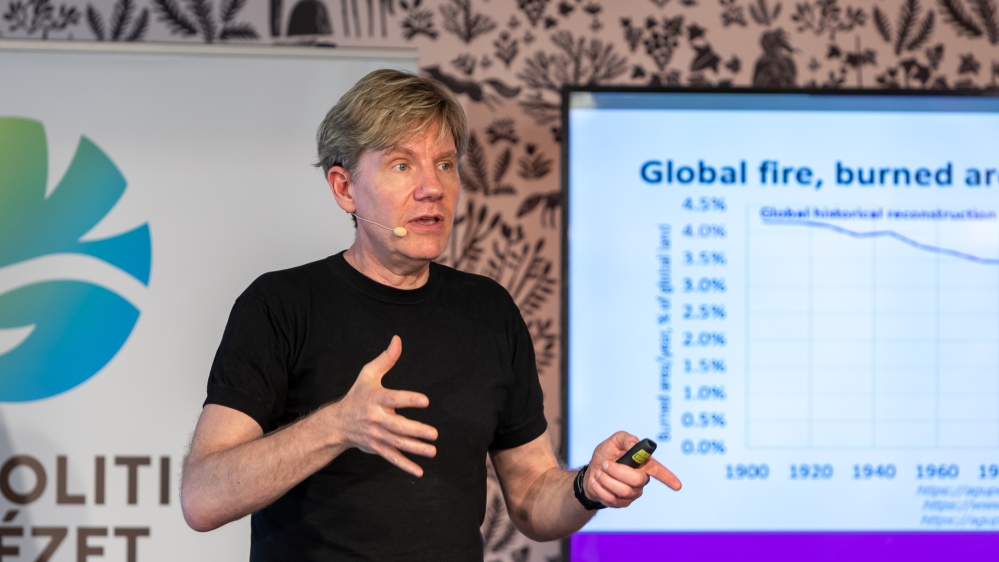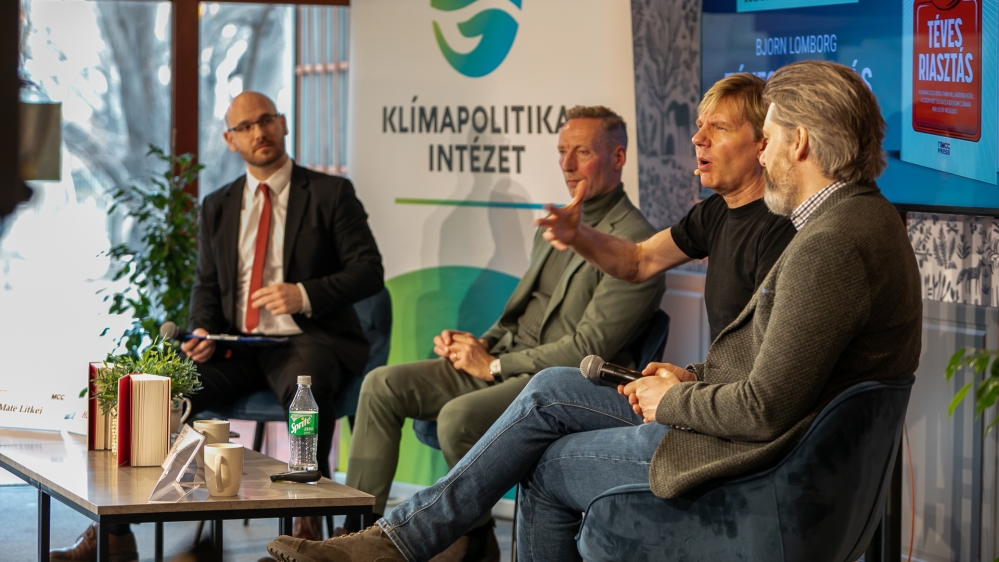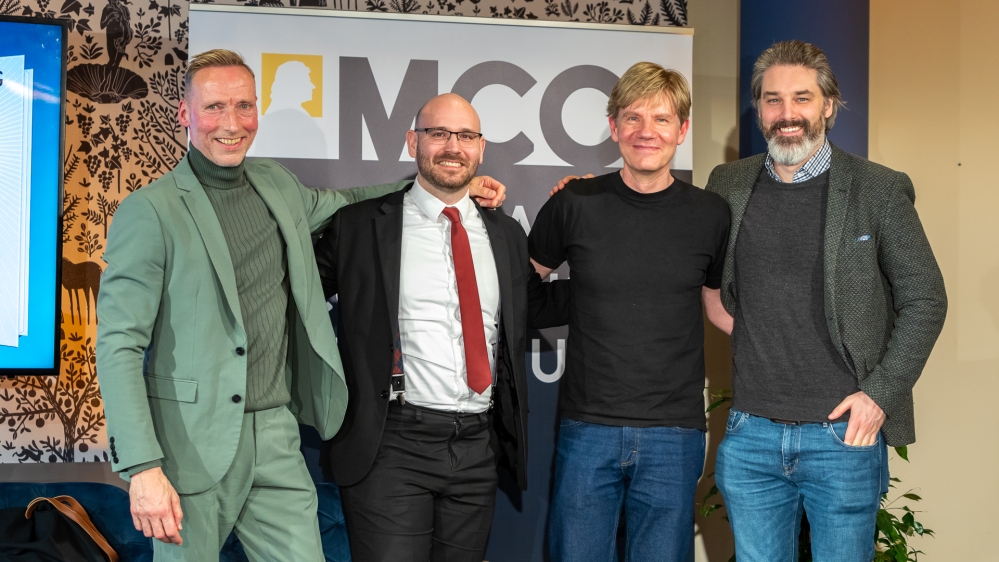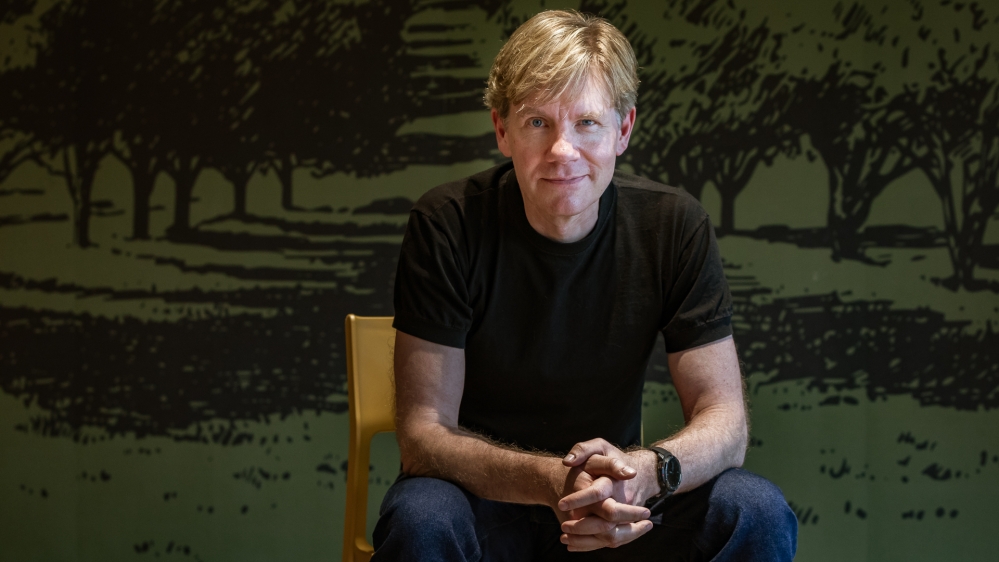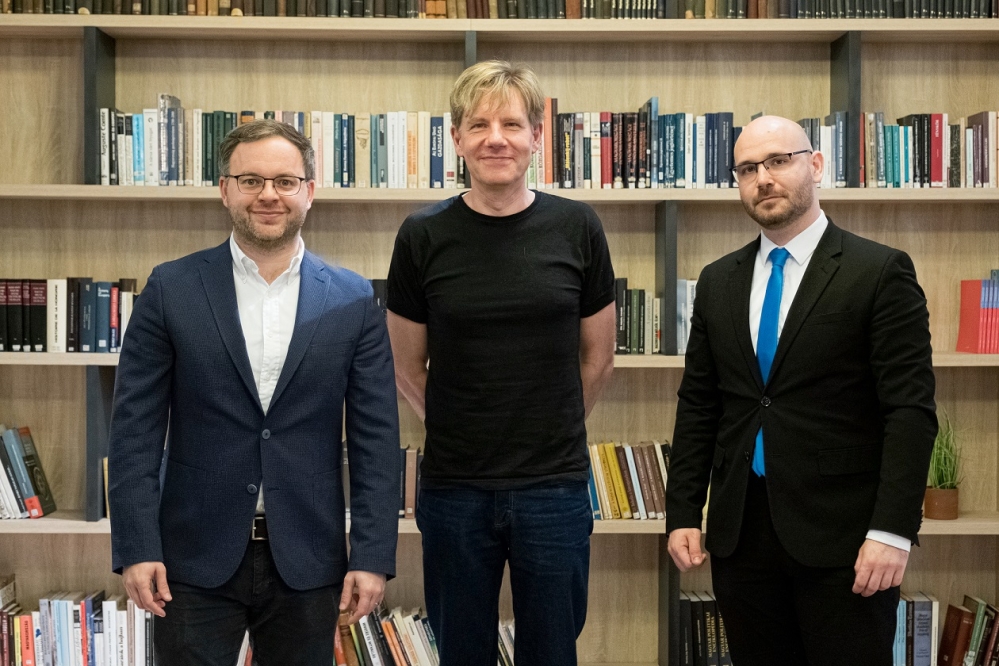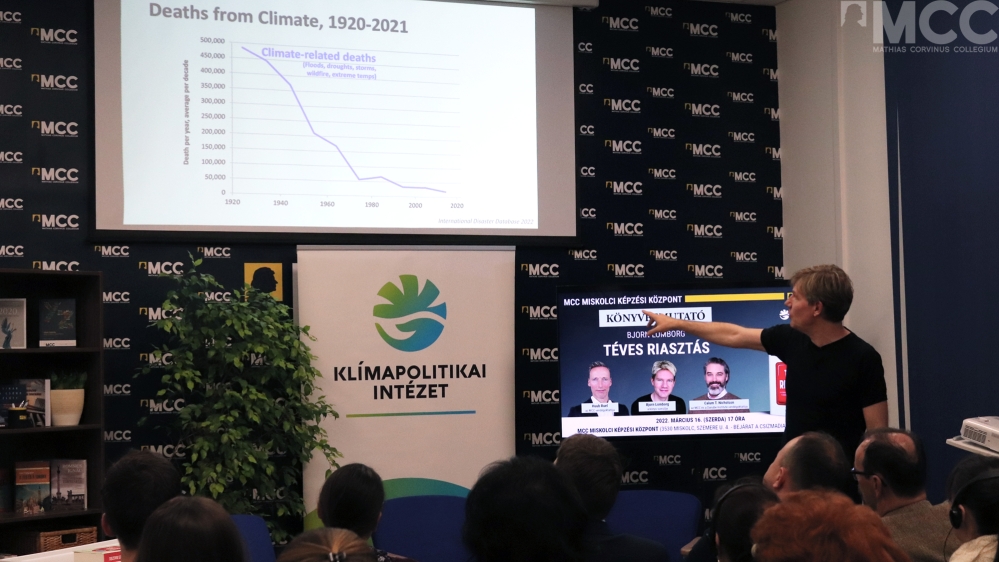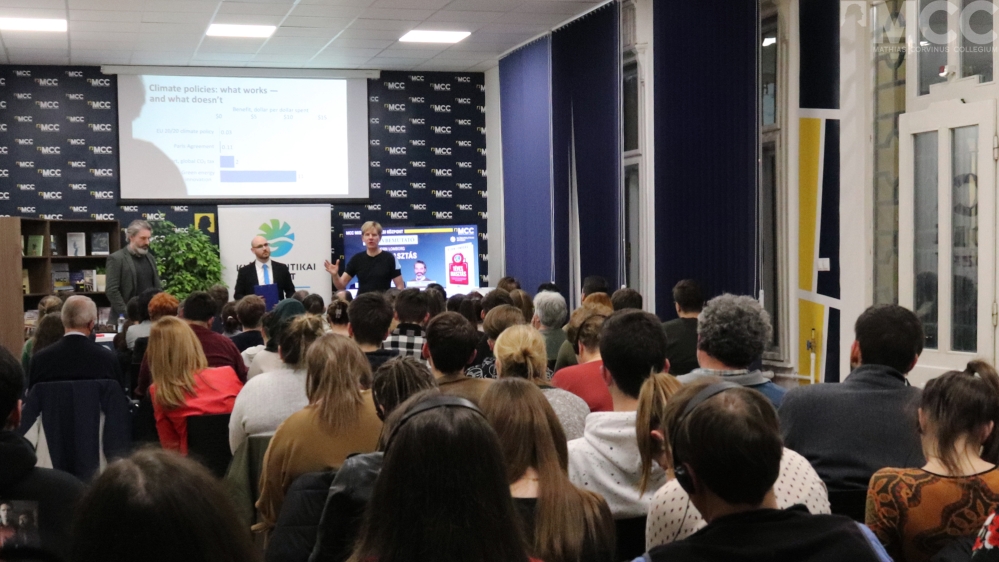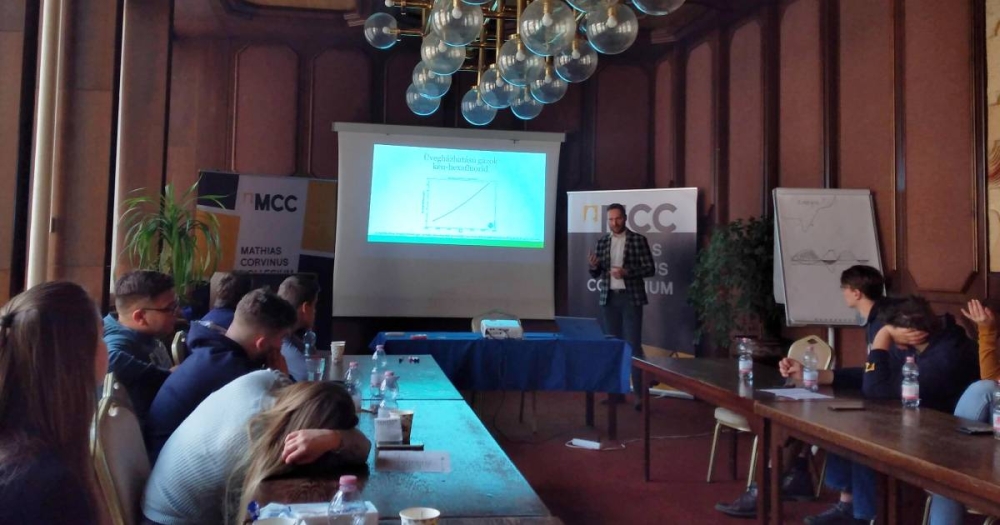In Miskolc and Budapest, in the framework of an informal discussion, we held a book launch with the world-renowned Dr Bjørn Lomborg, founding president of the Consensus Center, whose bestselling book entitled False Alarm has been published in Hungarian by MCC Press. Lomborg has previously been listed among the most prominent and influential environmental thinkers by the World Economic Forum, Time Magazine, The Guardian, Foreign Policy and Prospects.
The Danish Bjørn Lomborg holds a degree in political science, but he has made a name for himself in the field of statistics and economic modelling. He has studied climate change for more than 20 years. He believes that human activities amplify the consequences of climate change, and it is only humans that can solve the problem. For the time being, it seems that we do not have the right tools.

In Lomborg's view, the climate strategies being used worldwide are ineffective and may even be wrong. When calculating the costs of climate change, we tend to focus on the costs of the adverse effects of climate change, and less on the costs of implementing climate policies, which is misleading.
His data analyses and modelling suggest that climate change will not bring the apocalyptic changes to our lives as the media, politicians and green movements suggest. These latter actors are more interested in dramatizing the situation. They can more easily appeal to people by highlighting the ecological disaster than by presenting good ecological solutions and good practices.

The environmental expert believes that the resources we are spending on climate change are being misallocated. For example, we are spending an unrealistic amount of money on weather-dependent renewables, which, for the moment, do not guarantee the security of supply and account for a very small proportion of the world's energy production. Lomborg, who currently works also with Bill Gates, believes that the Microsoft chief's fourth-generation sodium-based nuclear power plants and similar nuclear innovations receive unfairly little attention.
Lomborg argues that we should be spending more on education, green innovation and raising living standards. Poverty clearly increases exposure to climate change, while prosperity and technological development make societies more resilient. Prosperous societies are also much more likely to embrace and diffuse green innovation. Both the public and the business world are receptive to environmental protection if the basic conditions for its operation are already in place. When there is war, deprivation or lack of access to basic services such as transport, public safety, health or social security, people will not be concerned about environmental issues. In the first half of this century, nearly half a million people died as a result of extreme weather events and ecological disasters. While climate change is now thought to be a much more serious problem, the number of deaths from climate-related disasters is now in the tens of thousands. The reason for this change is the evolution of humanity, and thus its increased resilience.
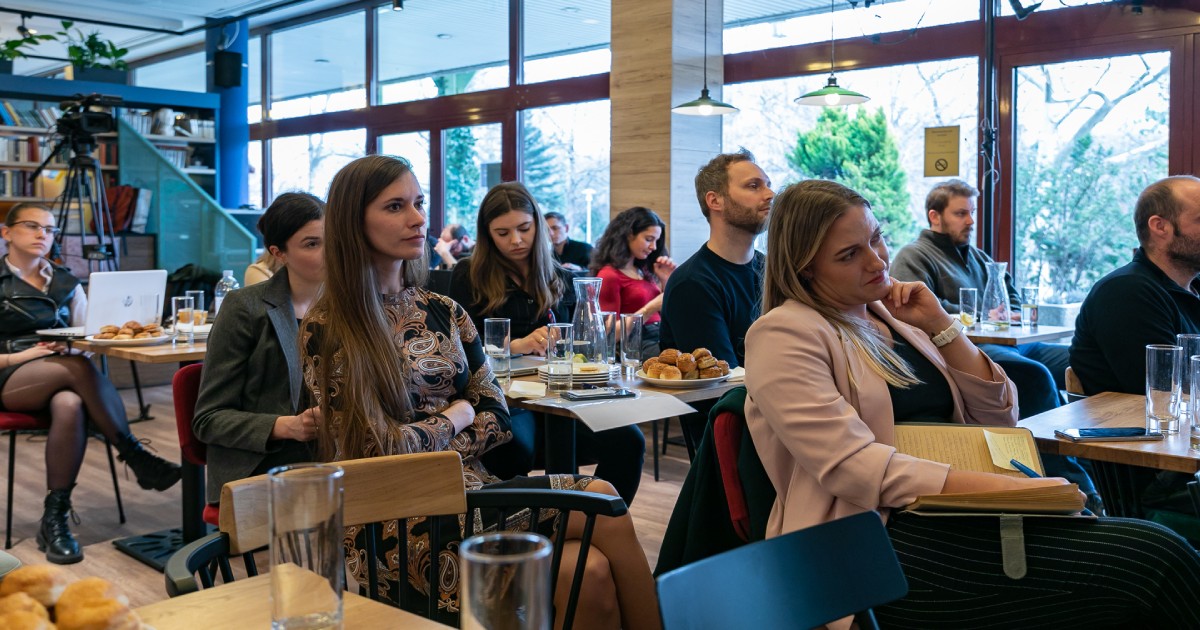 These and related topics were discussed at the exclusive book launch events organized by MCC and the Climate Policy Institute, which took place in Miskolc on 16 March and in Budapest on 17 March. During the book discussions, moderated by Máté Litkei, Director of the Climate Policy Institute, Calum T. Nicholson and Huubertus Ruël, MCC visiting fellows, shared their thoughts with the audience.
These and related topics were discussed at the exclusive book launch events organized by MCC and the Climate Policy Institute, which took place in Miskolc on 16 March and in Budapest on 17 March. During the book discussions, moderated by Máté Litkei, Director of the Climate Policy Institute, Calum T. Nicholson and Huubertus Ruël, MCC visiting fellows, shared their thoughts with the audience.


